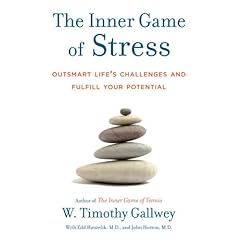Some would say this has been true since 2006, when the FDA approved Gardasil for exclusive use in girls/women, and finally the FDA agrees. Last week Merck received FDA approval for Gardasil to be used as a genital warts vaccine in boys/men (ages 9 to 26 years old). However, yesterday, the CDC Advisory Committee on Immunization Practices voted for only “permisive” use in boys, rather than voting for the stronger recommendation of “routine use,” as they had for Gardasil’s use in girls/women.

As reported in Bloomberg.com, this decision had been predicted by some experts:
William Schaffner, chairman of the department of preventive medicine at Vanderbilt University in Nashville, Tennessee, said the panel will be asking itself “if we vaccinate all the girls, how much additional benefit will we get by vaccinating the boys?”
The Atlanta Journal-Constitution cited a similar argument from a different expert:
Debbie Saslow, director of breast and gynecologic cancer at the American Cancer Society, agreed with the findings. “If we can vaccinate a high enough proportion of young girls, then vaccinating boys is not cost-effective,” she said.
This line of reasoning and the ACIP’s conclusion are problematic on two levels. First, there seems to be a privileging of female health over male health. There are compelling reasons “ other than the prevention of cervical cancer” for the ACIP to recommend “routine use” of a safe and effective male HPV vaccine. Second, there seems to be a heterosexist assumption in the ACIP’s decisions — that all boys/men are sexually attracted to (and sexually active with) girls/women and vice versa.
Maggie Fox of Reuters offered a more complete assessment in her article published yesterday:
The main reason the vaccine was approved was to prevent cervical cancer, which kills 4,000 women a year in the United States alone. But various strains of HPV also cause disfiguring genital warts, anal and penile cancers and head and neck cancers. “We know that the later the cancer is discovered, the lower the chance of survival is,” David Hastings of the Oral Cancer Foundation told the committee, asking for a recommendation to add the vaccine to the standard schedule for boys. However, ACIP decided only to consider its use based on its ability to prevent genital warts.
Did the ACIP adequately factor in the clinically proven causal links between certain strains of HPV and potentially life-threatening oral cancers — which do not discriminate on the basis of sex? This seems important, particularly if, “The death rate for oral cancer is higher than that of cancers which we hear about routinely such as cervical cancer” (Oral Cancer Facts)?
A recent New York Times article reports that the committee will “take up the issue of the vaccine’s effectiveness in preventing HPV-related male cancers at its next session in February, when more data should be available.” But data has been available since 2007, when results of clinical studies were reported and the Oral Cancer Foundation issued a press release urging male HPV vaccination?
If the FDA believes Gardasil is safe and effective, then we deserve a more thorough explanation of why the vaccine’s potential to protect against oral cancers — in both men and women — is not reason enough for the federal advisory group to issue as strong a recommendation for male vaccination as for female vaccination.


